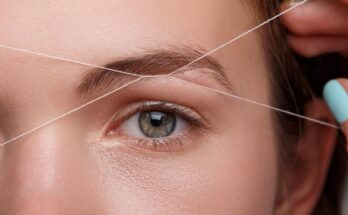Using black contact lenses can be a striking way to change your appearance, whether for costumes, theatrical performances, or personal fashion choices. However, it’s crucial to exercise caution when using any type of black contacts, including black ones, to avoid potential risks and ensure eye health and safety.
Consult an Eye Care Professional: Before using black contacts or any other coloured lenses, schedule an appointment with an eye care professional. They will assess your eye health and fit you with lenses that are safe and appropriate for your eyes. This step is essential even if you do not normally wear corrective lenses.
Get a Prescription: Even if you have perfect vision, it’s important to obtain a prescription for black contact lenses. This ensures that the lenses fit properly and are made from materials that are safe for your eyes. Never buy contact lenses from unlicensed vendors or without a prescription.
Follow Cleaning and Maintenance Guidelines: Proper hygiene is crucial when handling contact lenses. Wash your hands thoroughly with soap and water before touching your lenses. Use recommended contact lens solution to clean and store your black lenses, following the manufacturer’s instructions carefully.
Limit Wear Time: Avoid wearing black contact lenses for extended periods, especially if you are not accustomed to wearing contacts regularly. Start with short periods of wear and gradually increase as you become more comfortable.
Avoid Sharing Lenses: Sharing contact lenses, even if they are non-prescription or cosmetic, can spread bacteria and increase the risk of eye infections. Each person should use their own pair of lenses prescribed by an eye care professional.
Monitor for Discomfort: If you experience any discomfort, redness, or irritation while wearing black contact lenses, remove them immediately and consult your eye care provider. Prolonged wear or improperly fitting lenses can damage the surface of your eyes.
Choose Quality Products: Purchase black contact lenses from reputable manufacturers and vendors. Quality lenses are made from materials that allow oxygen to pass through to your eyes, reducing the risk of dryness and irritation.
Attend Follow-up Appointments: If your eye care professional recommends follow-up appointments, attend them as scheduled. These appointments ensure that your eyes remain healthy and that your lenses continue to fit properly.
Do Not Sleep in Lenses: Sleeping in contact lenses, including black ones, significantly increases the risk of eye infections and other complications. Always remove your lenses before sleeping, even if you only plan to nap briefly.
Be Mindful of Allergic Reactions: Some individuals may be allergic to certain materials used in contact lenses. If you have a history of allergies or if you develop symptoms such as itching, swelling, or excessive tearing, discontinue use and consult your eye care provider.




